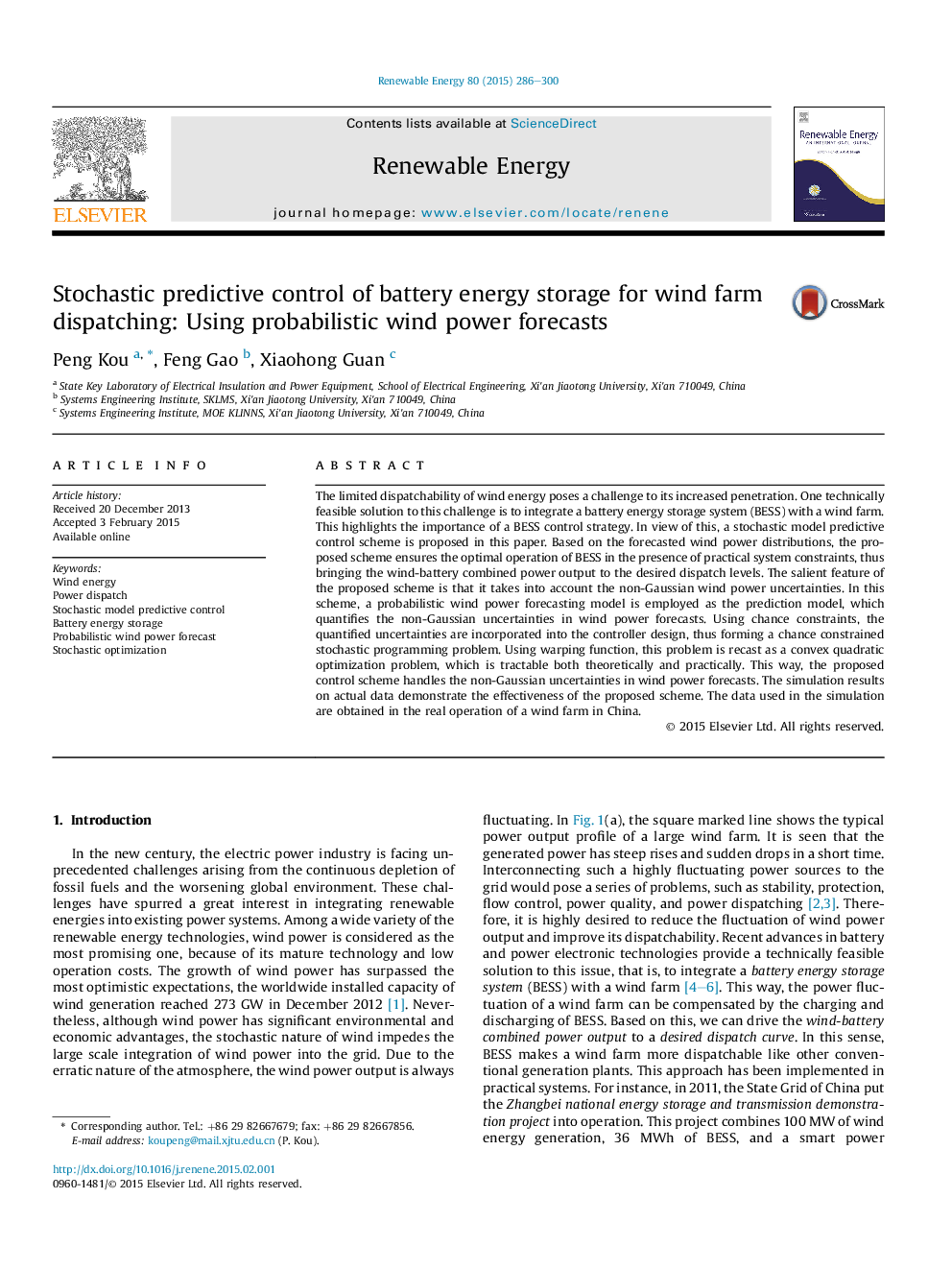| Article ID | Journal | Published Year | Pages | File Type |
|---|---|---|---|---|
| 6767214 | Renewable Energy | 2015 | 15 Pages |
Abstract
The limited dispatchability of wind energy poses a challenge to its increased penetration. One technically feasible solution to this challenge is to integrate a battery energy storage system (BESS) with a wind farm. This highlights the importance of a BESS control strategy. In view of this, a stochastic model predictive control scheme is proposed in this paper. Based on the forecasted wind power distributions, the proposed scheme ensures the optimal operation of BESS in the presence of practical system constraints, thus bringing the wind-battery combined power output to the desired dispatch levels. The salient feature of the proposed scheme is that it takes into account the non-Gaussian wind power uncertainties. In this scheme, a probabilistic wind power forecasting model is employed as the prediction model, which quantifies the non-Gaussian uncertainties in wind power forecasts. Using chance constraints, the quantified uncertainties are incorporated into the controller design, thus forming a chance constrained stochastic programming problem. Using warping function, this problem is recast as a convex quadratic optimization problem, which is tractable both theoretically and practically. This way, the proposed control scheme handles the non-Gaussian uncertainties in wind power forecasts. The simulation results on actual data demonstrate the effectiveness of the proposed scheme. The data used in the simulation are obtained in the real operation of a wind farm in China.
Keywords
Related Topics
Physical Sciences and Engineering
Energy
Renewable Energy, Sustainability and the Environment
Authors
Peng Kou, Feng Gao, Xiaohong Guan,
